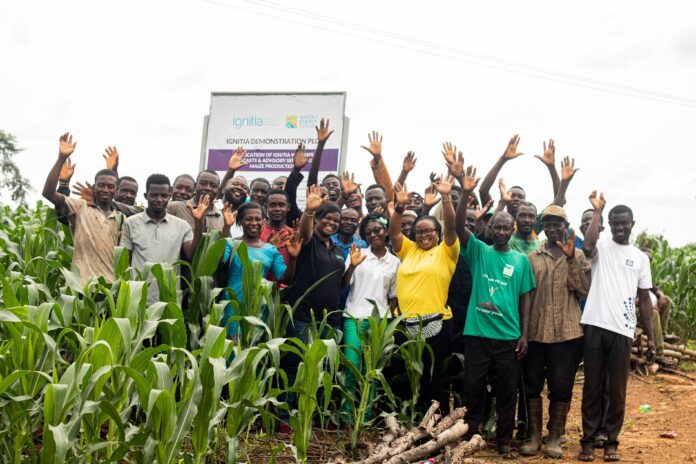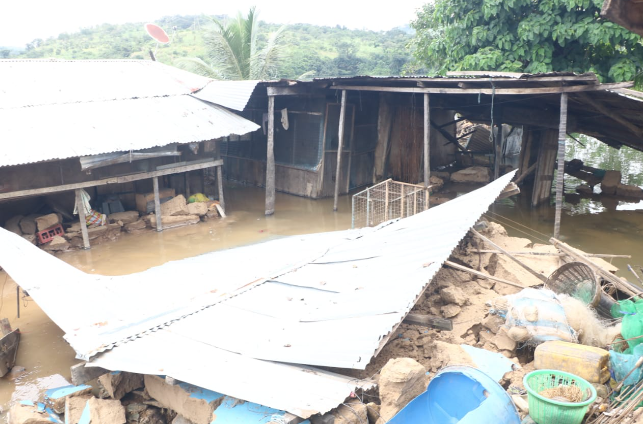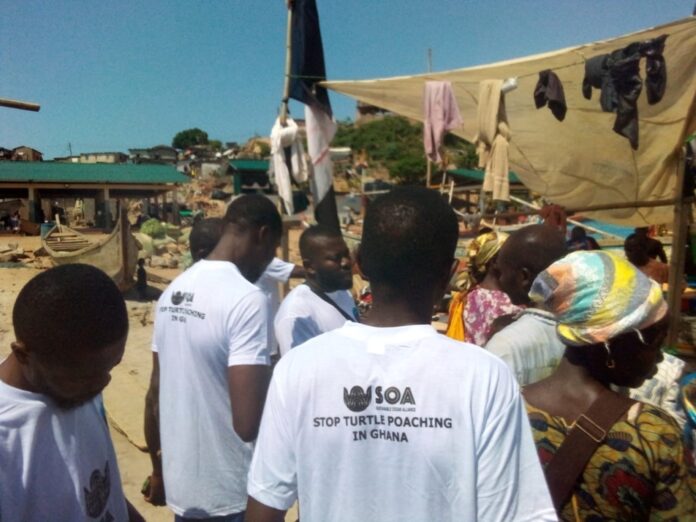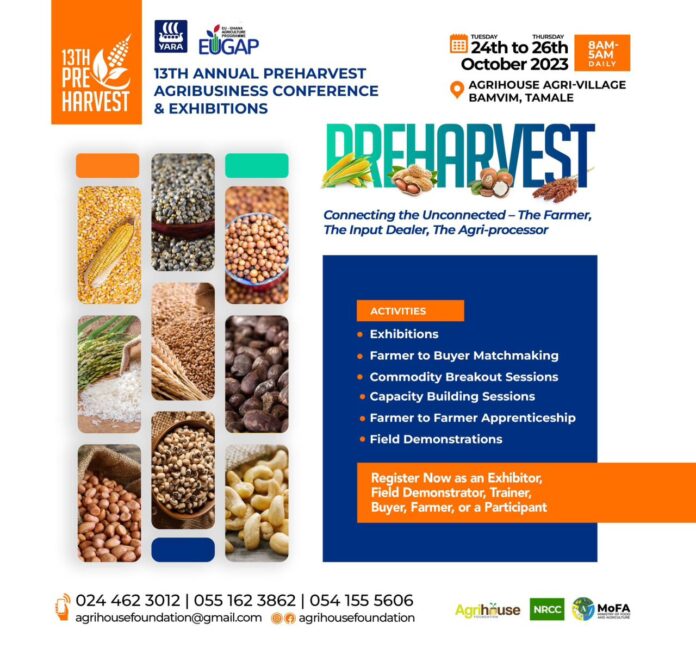Ignitia, a tropical weather forecasting company has over the years been supporting tropical farmers across the globe with climate intelligence solutions.
Their aim is to help address the problem of low accuracy weather forecasts in the tropical regions with its atmospheric physics-based numerical predictions, the company delivers hyper-local forecasts that are twice as accurate as global models.
They provide crop specific climate-smart advisory, co-designed with food system stakeholders and delivered via SMS, WhatsApp, smartphone apps, web and APIs sent across a range of different time scales, ranging from 48h rainfall forecast to monthly and seasonal predictions without requiring expensive, hard to maintain weather stations.
Climate
During a visit to a maize demonstration field at Obawale and Sodjonu in the Yilo Krobo District of the Eastern Region, Kwabena Frimpong, the Regional Director for Africa, ignitia, elaborated that their collaboration with small-scale farmers in Ghana and West Africa dates back to 2015.
According to him, the primary goal has been to furnish these farmers with dependable SMS forecasts, thereby mitigating risks and minimizing losses in their various communities.
“We are based in Ghana, but have expanded into Burkina Faso, Ivory Coast, Mali, Togo, Nigeria, among others, because our weather model is dependent on satellite data, our ability to expand is not hindered by the high costs of creating on-ground infrastructure; this means that expansion to new tropical areas is easier.
“Climate change poses a significant threat to food security and the livelihoods of smallholder farmers in tropical regions with weather performance worse than tossing a coin and more than 96% of cultivated land is rain-fed.
“This is why I am excited that we have been able to establish two different demonstration farms in the Eastern Region of Ghana where our SMS services are being tested to confirm with farmers if really our technology is the world’s first and most accurate tropical weather forecasting company with over 84% reliability” he said.
Municipal Agric Officer in charge of extension with the Department of Agriculture, Dr. Francis Nii Clottey Odonkor mentioned that the demonstration farms are encouraging farmers to embrace this great innovation introduced by ignitia.
“This tool enables us to give more frequent and district-level predictions of rainfall, dryness, and drought which helps us to provide advanced warning of rains or dry days to our farmers in the various communities.
“Their service has been tailored for the primary sector and they have collaborated with farmers and growers over the last two years to ensure it provides useful information.
“It’s helping farmers and growers to prepare in advance ahead of planting or spraying pesticides on their crops.
“All this while we were looking for a more accurate medium-term forecast, that will enable us to make reactive decisions all the time.
“Having as much information as we can around an uncontrollable thing, which is the weather, is really helpful in the farming business” he said.
Services
Business Advisor with ignitia Ghana, Miranda Osei Agyemang explained how ignitia’s services are helping farmers in these critical times.
“ignitia offers farmers an affordable SMS service which is just costing the farmer 20 Ghana Pesewas a day.
“One of the significant advantages of our SMS weather alert system is the provision of real-time weather updates; instead of relying on outdated forecasts, our users receive up-to-date information directly on their mobile device and they do not need internet connectivity or smart phones, which makes them accessible to a wider audience even in the rural communities.
“This enables them to stay informed about rapidly changing weather conditions and adjust their plans accordingly.
“ignitia empowers farmers to sustainably grow and improve yield, income, and family livelihoods by enabling better decision making for their farming activities, while promoting regenerative agriculture” she added.
Agric Extension Agent with the Ministry of Food and Agriculture, stationed at Abrewankor and Nkurakan Operational Area, Ernest Amanor – Larbi explained that farmers in these communities received training on how to use the SMS Services.
“Our farmers have learnt how to make decisions based on the information received and understand the uncertainties.
“ignitia’s SMS weather alert service has come to play a vital role in enhancing safety and preparedness at our community level.
“We are now receiving timely weather alerts, individuals can take necessary precautions and make informed decisions to protect themselves and their farms.
“Traditional methods of weather alerts, such as radio or television broadcasts, may not always reach us in a timely manner and that is why I am excited about ignitia’s SMS weather alert service for my farmers” he added.
Appreciation
The over 60 farmers who joined in the field visit to have a look at the demonstration farm were grateful to ignitia Ghana for introducing this new SMS weather alert service to them and their Agriculture extension officers in the Yilo Krobo District.
“We are excited that this SMS weather alert service delivers real-time weather updates and emergency notifications directly to our mobile phones via text messages, which is very easy for us farmers to read and understand based on your location and preferences.
“We have learnt in our training that users can select the types of alerts they wish to receive, such as severe weather warnings, temperature fluctuations, or air quality alerts.
“This customization ensures that individuals receive alerts relevant to their specific location and interests” said 2022 Best farmer for Yilo Krobo, John Kwame Mautsuemi and Regina Nartey Atta a Maize farmer in the Obawale community.














